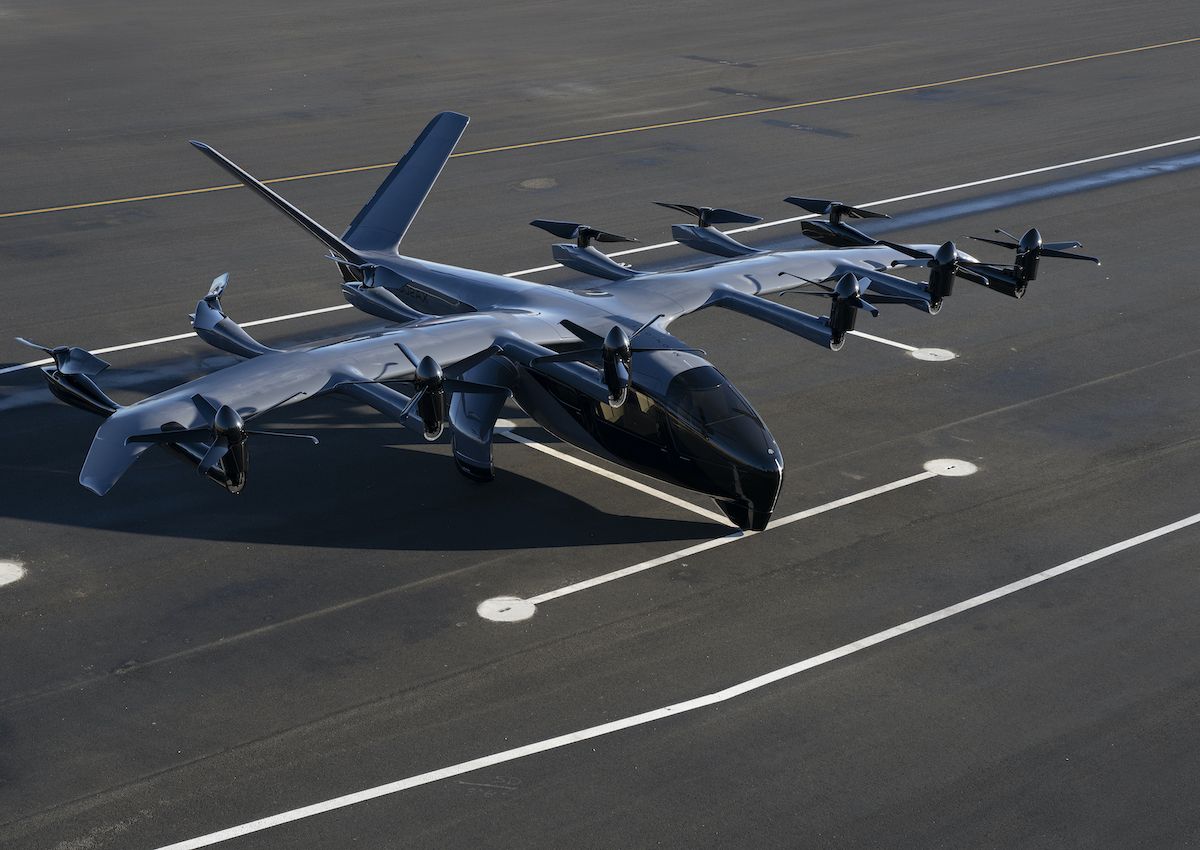Nobody's putting wings on automobiles, but carmakers have emerged as key partners for a bevy of aviation startups working on electric "air taxis."
Why it matters: It's a critical time for the emerging urban air mobility sector.
- Several leading developers of electric vertical takeoff and landing (eVTOL) aircraft are aiming to get Federal Aviation Administration certification within the next couple of years.
- But they need capital and manufacturing expertise to bring their aircraft, which look like oversized drones, to market and begin whisking passengers across cities or to the airport.
- Automakers can help on both counts, while ensuring they remain on the cutting edge of transportation.
Driving the news: Stellantis, which makes Jeep and Chrysler vehicles, said Wednesday it will manufacture an electric air taxi with Archer Aviation — one of several eVTOL companies nearing commercialization.
- It also plans to invest $150 million in Archer, following an initial $75 million investment in 2021.
- Stellantis, which has been providing Archer with engineering expertise, will now help it launch a new manufacturing facility in Covington, Georgia, starting in 2024.
- The plan is for Stellantis to become the exclusive manufacturer of Archer's newly revealed eVTOL, called Midnight.
Details: Midnight, which can carry four passengers plus a pilot, is designed for back-to-back hops of around 20 miles, with approximately 10 minutes of charging between flights.
- Its first route, starting in 2025, will link a Manhattan heliport to Newark Liberty International Airport, in partnership with United Airlines — also an Archer investor.

Between the lines: To make air taxis affordable, eVTOL developers need to produce them in large numbers and keep them flying as much as possible.
- Most plan to scale from making hundreds of aircraft annually to tens of thousands — far more than traditional airplane manufacturers.
- Carmakers are experts at high-volume production and complex supply chains. They can also learn more about aerodynamics, composites and battery efficiency from their aviation partners.
What they're saying: "The partnership here I think really helps considerably de-risk and accelerate Archer's ability to get to market and produce vehicles at scale," Archer co-founder and CEO Adam Goldstein told reporters.
- Stellantis CEO Carlos Tavares framed the partnership as a hedge against what he considers an existential risk facing automakers.
- "We are all about freedom of mobility, and I really think sincerely that freedom of mobility is at risk in the Western world," said Tavares, a 41-year auto industry veteran.
- He pointed to vehicle bans in some cities meant to combat congestion and pollution, as well as safety issues and the rising cost of transportation.
The big picture: Stellantis isn't the only carmaker collaborating with budding aviation startups.
- Toyota is a major investor in Archer rival Joby Aviation, and helped design Joby's pilot manufacturing plant in California.
- Porsche is partnering with Embraer's Eve Air Mobility to begin mass production of its four-passenger eVTOL aircraft.
- Hyundai has created its own eVTOL spinoff, Supernal.
- Honda, which developed its own business jet, also plans to produce an air taxi.
- Mercedes-Benz parent Daimler has partnered with Germany's Volocopter.
Flashback: Henry Ford dabbled in aviation too.
- His 1926 Ford "Flivver," a flying car for the masses, was supposed to do for airplanes what the Model T had done for autos, Smithsonian Magazine recalls.
- A 1928 crash ended Ford's dream of affordable aviation. Nearly 100 years later, that dream could still become reality for the industry he helped create.







